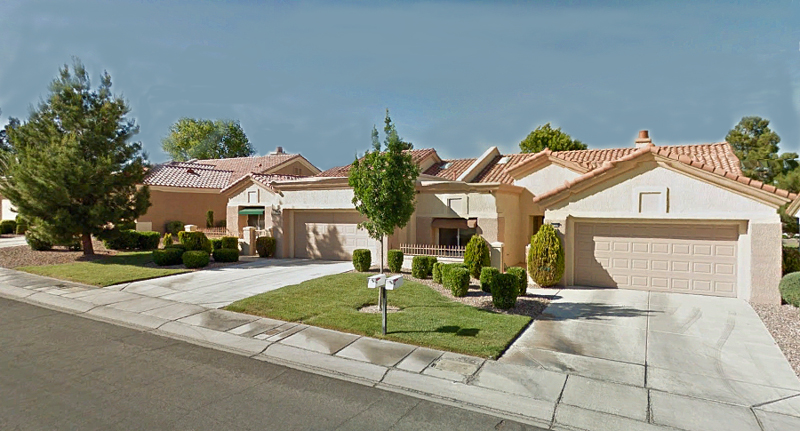Market Value – Pricing your Las Vegas Home
What is Real Estate Market Value?
Real Estate Market value can be defined as the probable price that a property will sell for, on the date of appraisal, allowing for a reasonable time to find a willing and informed purchaser and where neither the vendor nor the purchaser is acting under duress. In a normal or average real estate market, "reasonable" means one to three months. Or simply put:
Market value is the price at which a particular house will sell for in its current condition within 30 to 60 days.This definition contains three elements:
1. Particular house
2. Current condition
3. 30 to 60 days
The only real measure of market value is what a particular house sells for, Period. However, unless you have a crystal ball, you might think you cannot predict how much someone will pay for the house in the future.
Not true. You can learn to come very close to predicting the true market value of any house even without a crystal ball. Real estate appraisers do it every day. Even so, the appraisal of real estate is more art than science. An appraisal is only an opinion, an educated guess. Let’s start learning to predict market value by analyzing each of the three elements of our definition.
1. The Particular House
When you determine market value, you must always remember that you are estimating the market value of one particular house. The location, or neighborhood, of this particular house is the starting point for your investigation. The exact same house in the next city, or even on the other side of the same city, is not relevant to this determination.
For example, a house located in Anthem area of Henderson could be worth $800,000. But if the exact same house were located in Northeast Las Vegas it might be worth only $500,000. That’s still a hefty price. But it’s substantially less than the price of the house in the Northeast.
Although this may seem like an extreme example, house prices throughout the Las Vegas area fluctuate significantly from city to city and from neighborhood to neighborhood. Therefore, whenever you determine the market value of one particular house, you must compare it only with similar houses in the same or nearby neighborhoods.
2. Current Condition
Next, you must assess the current condition of the particular house. The current condition determines the number of buyers who are interested in purchasing the property, which affects the amount of time the house remains for sale on the market before it is sold.
Most home buyers want to buy the prettiest house on the block. Is the house gorgeous and ready to move into? Or is it a fixer-upper that needs a major renovation?
Simply subtracting the amount of estimated fix-up costs from the selling price of other similar houses in the same neighborhood is not an accurate way to determine current market value for a particular house. If a house in good condition could sell for $280,000 and the house you are interested in needs $10,000 worth of repairs, that does not necessarily mean the current market value of your house is $270,000.
Here’s why: Far fewer buyers want to buy a house that doesn’t look pretty( See my staging your home for sale ). When a house attracts fewer buyers, it takes longer for the house to sell. To attract more buyers and sell the house sooner, the price may have to be reduced by much more than the mere cost of repairs. Conversely, if the local real estate market is ‘hot’ then the home may not sell for too much less without the renovations completed!
Although the current condition of the house is an essential element of market value, it is almost impossible to determine exactly how much the physical condition of the house affects its value. This simply is not an exact science. As a general rule, you should be fairly safe if you subtract two to three times the amount of the fix-up costs.
3. 30 To 60 Days
In a "normal" real estate market, if a house doesn’t sell within one to two months (30 to 60 days), the reason is simple: The price is too high. Even perfect houses don’t sell within this time frame if the price is too high. On the other hand, if a house sells within one to two weeks, the asking price was probably right near market value. Depending upon the local market activity, a house that sells within one to two months is priced at the true market value of the house.
Imagine this scenario. It will take a year to sell a particular house for $300,000, six months to sell it for $280,000 and one week to sell it for $270,000. The price that will sell this house within one to two months lies somewhere between $280,000 and $270,000. The price that will sell this house in one to two months is probably right around $275,000, its true market value.
Market value is simply the price at which something will sell for within a reasonable period of time if effectively exposed to the market. Call me or e-mail me and we can discuss how to market value can be determined through a comparative market analysis.



